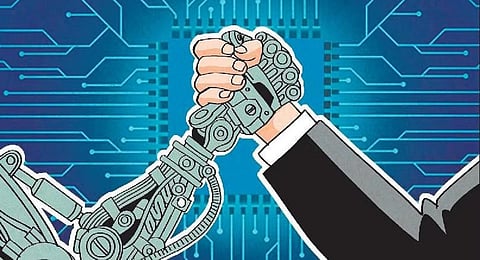

Social media platforms like LinkedIn are filled with people talking about their achievements—sharing their promotions, and professional milestones, journeys and advance life lessons. From the challenges of parenthood to the difficulty of raising funding in a difficult market, social media feed is a loudspeaker for demonstrating accomplishments. The more arduous the task, the greater the sense of accomplishment. The alchemy of achievement will likely change with automation. There is a legitimate fear that as AI unbundles work from the worker, it could make achievements inconsequential. After all, if ChatGPT could write this article, there would be no need for the editor to commission me.
In philosophy, achievement has not been studied extensively. That’s where Gwen Bradford’s work plays an important role. She provides the defining characteristics of achievements and defends the claim that they are intrinsically valuable.
Her analysis suggests that achievements have the following characteristics:
1. A process-product relation. We feel a sense of achievement arises when we use a defined process to produce something tangible. As automation becomes more mainstream, different aspects of work will not need significant human intervention, thereby diminishing the scale and scope of achievements.
2. Level of difficulty involved. For something to be an achievement, the level of difficulty must be above a certain threshold. A certain level of effort or skill must be required. Powering the laptop on is not an achievement, but writing 10,000 quality words on the machine, is.
Given the pace of technological advancement, it is reasonable to expect automation to reduce the level of difficulty. A designer who earlier spent hours tinkering on PhotoShop might be able to get the desired output in seconds using AI applications like MidJourney. One way of looking at this scenario is to think that the designer is now reduced to someone who punches inputs and waits for the machine to deal with the creative process. Another way would be to visualise a scenario where the role of the designer has transformed from getting the basic creative outline done to someone who finesses the output of the machine and creates something better. In the first scenario, achievement may be reduced, but in the second one, the designer could find an equal or greater sense of accomplishment in producing something of higher quality in lesser time.
3. The process should be sufficiently non-lucky. The output should be achieved using skill, not luck. Winning a lottery is not sufficiently non-lucky, even though there is a process-product relationship and is a difficult (low probability event) outcome. The level of skill required is minimal. Let’s turn our attention to cases where luck cannot be discounted.
Penicillin was discovered by Alexander Fleming in 1928 due to accidental contamination, X-rays were discovered while conducting a different experiment altogether, and Dr John Pemberton figured out the formula for Coca-Cola while trying to create a new headache and hangover remedy. These inventors most likely felt that they achieved something.
I believe, achievement stems from accomplishing a worthy task that is sufficiently difficult using something within one’s control. Luck would be welcome, but it cannot be the sole determinant.
It is likely that most professional opportunities of the future will involve collaborating with algorithms to achieve the desired outcomes. That’s why it is helpful to think of AI as IA (Intelligence Augmented). We will have to shape our sense of achievement by creating new opportunities. ChatGPT can write a basic article on almost anything. This means that if writers want a creatively fulfilling job, they will need to work with technology tools to create something better, perhaps with a human element.
The biggest mistake we make when analysing the role of technology in our lives is to consider it deterministic. The outcome is not pre-ordained. The norms we define today and the modes with which we engage with technology will determine how we view our achievement.
I am a technology entrepreneur, but I don’t want to rub my techno-optimism onto others who are justifiably anxious. There are legitimate concerns about the infusion of algorithms on all aspects of our lives, but these concerns can’t be alleviated by scary headlines and half-baked conclusions. It is important to address the concerns head-on and define the new normal that works toward a future that we can truly look forward to.
Posts on X (formerly known as Twitter): @utkarsh_amitabh
Utkarsh Amitabh - CEO, Network Capital; Chevening Fellow, University of Oxford